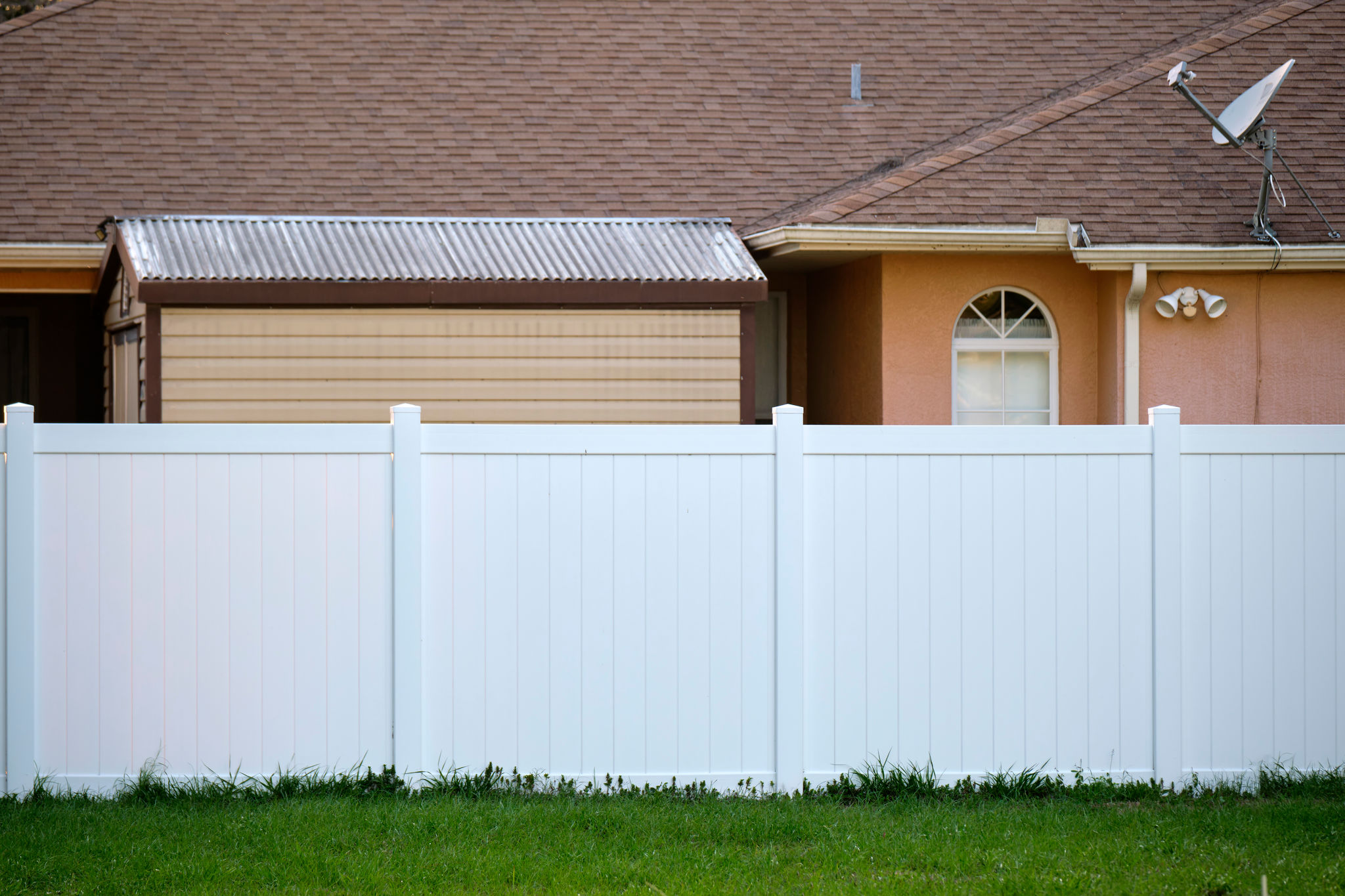Expert Advice: Choosing Between Wood and Vinyl Fencing
Introduction to Fencing Options
Choosing the right fencing material for your property can be a challenging decision. Wood and vinyl are two popular options, each with its own set of advantages and considerations. To make an informed choice, it's essential to understand the key differences between these materials.

Durability and Maintenance
When it comes to durability, both wood and vinyl have their merits, but they require different levels of maintenance. Wood fences are known for their natural beauty and can last for decades if properly maintained. However, they require regular staining or painting to protect against weather damage and pests.
On the other hand, vinyl fencing is renowned for its low maintenance requirements. Made from durable PVC, vinyl fences are resistant to rot, insects, and weathering. Unlike wood, they do not need painting or sealing, making them a convenient option for homeowners who prefer minimal upkeep.

Aesthetic Appeal
For many homeowners, the aesthetic appeal of a fence is a major consideration. Wood fencing offers a classic, timeless look that can complement various architectural styles. The natural grain and texture of wood add a warm, organic feel to any landscape.
Vinyl fences, while generally more modern in appearance, come in a variety of styles and colors. They can mimic the look of wood or provide sleek, contemporary lines. This versatility allows homeowners to choose a design that aligns with their personal taste and enhances their property's curb appeal.

Cost Considerations
Cost is another critical factor when deciding between wood and vinyl fencing. Initially, wood is often less expensive than vinyl. However, it's important to factor in the ongoing maintenance costs associated with wood. Regular treatments, repairs, and replacements can add up over time.
While vinyl fencing typically has a higher upfront cost, its long-term savings on maintenance can make it a more economical choice in the long run. For budget-conscious homeowners, it's essential to weigh these initial and ongoing expenses carefully.
Environmental Impact
The environmental impact of your fencing choice is another important consideration. Wood is a renewable resource but may require chemical treatments for protection, which can have environmental consequences. Sourcing sustainably harvested wood can help mitigate some environmental concerns.
Vinyl fencing is made from synthetic materials and is not biodegradable. However, many manufacturers are now producing recyclable vinyl options, reducing its environmental footprint. It's crucial to research the sustainability practices of manufacturers when selecting vinyl fencing.

Conclusion
Ultimately, the decision between wood and vinyl fencing comes down to your priorities regarding maintenance, aesthetics, cost, and environmental impact. Both materials offer unique benefits that can enhance your property in different ways.
By considering these factors and seeking expert advice if necessary, you can select the fencing material that best meets your needs and complements your home's style.